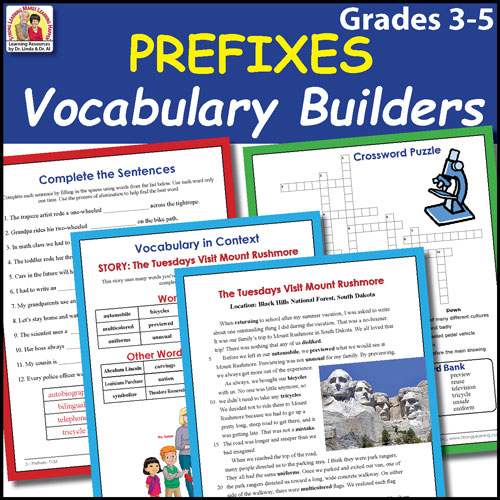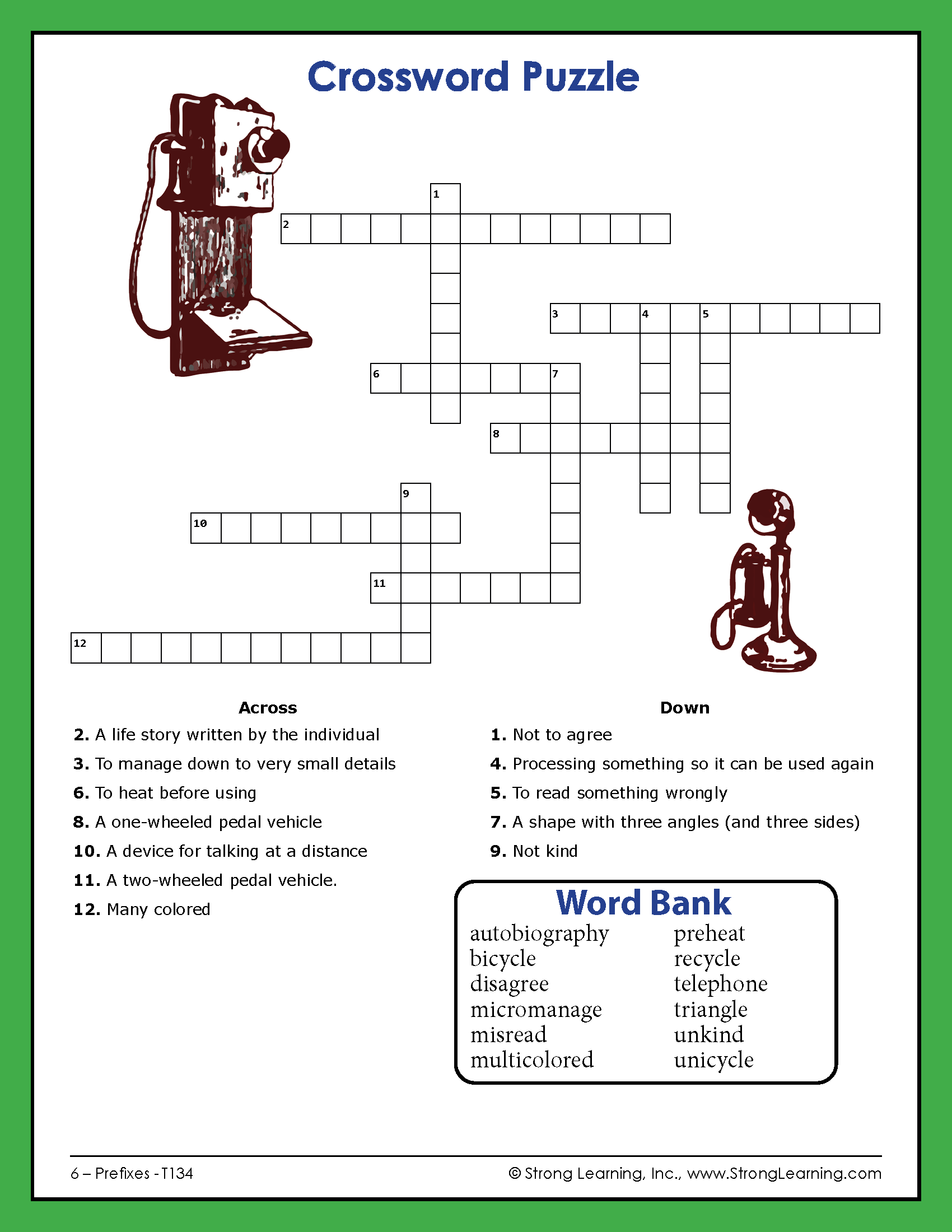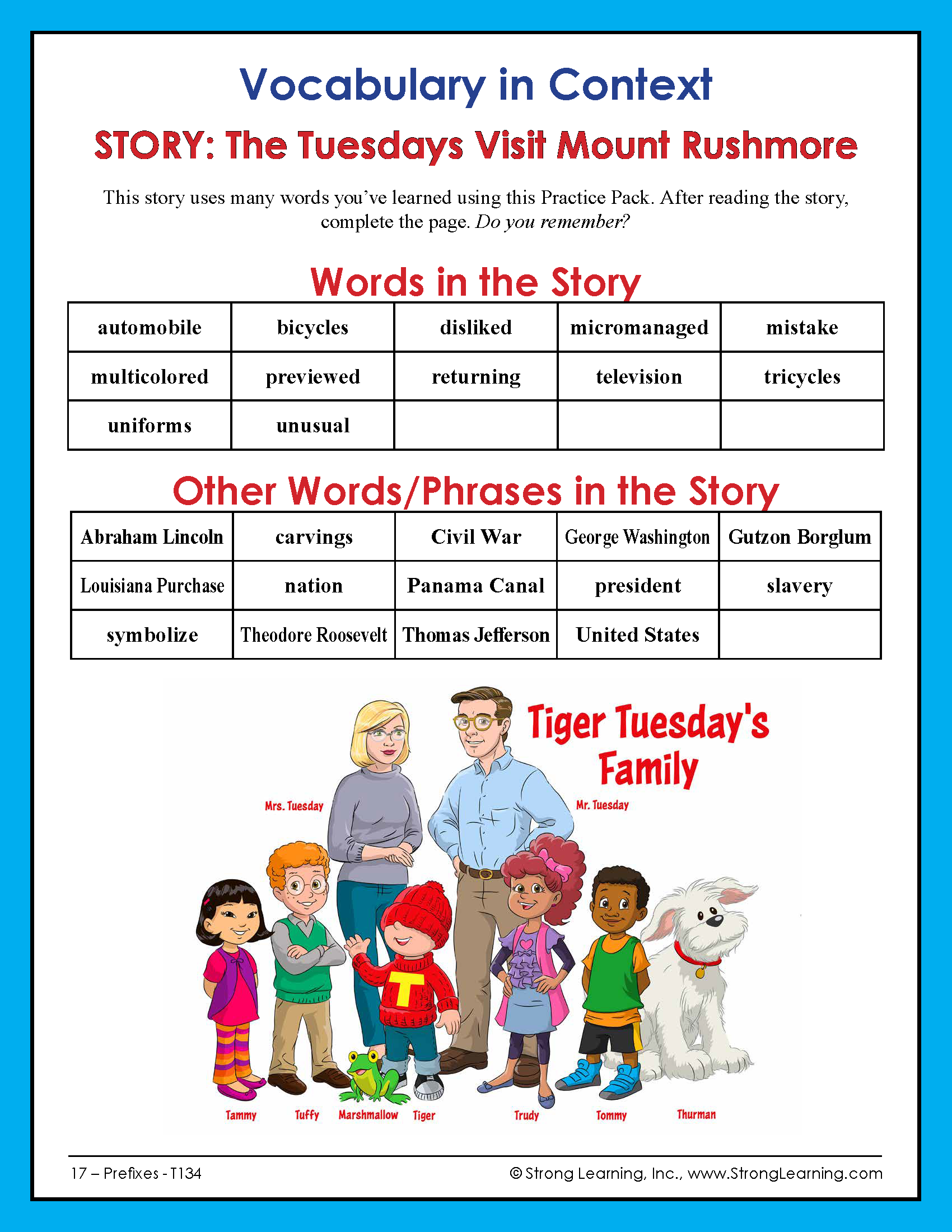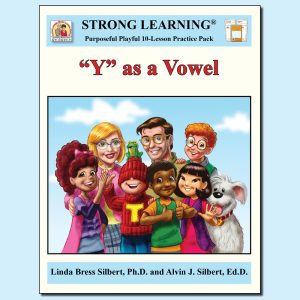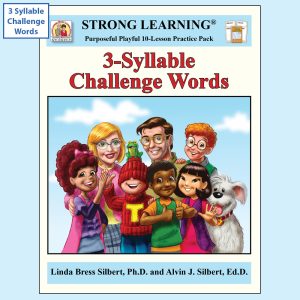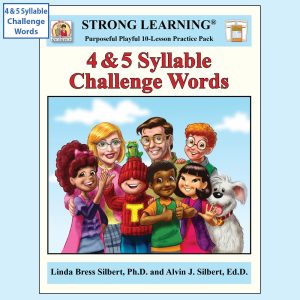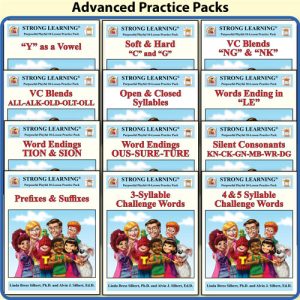Description
VOCABULARY BUILDER – Prefixes
No-Prep Lessons and Activities to Build Vocabulary for Grades 3-5+
Students learn that a prefix is a group of letters added to the start of a word, changing what it means. Example: the prefix “dis-“ means “not” or “opposite of.” In “disagree,” the root or base word is “agree.” When you add “dis-“ to “agree,” it changes its meaning to something like “not agree.”
Prefixes included in the New Prefix Practice Pack are:
auto, bi, dis, micro, mis, multi, pre, re, tele, tri, un, uni
Each prefix is followed by its meaning with the word used in a sentence.
Example: Autobiography The prefix auto means self, so autobiography means a life story written by the individual.
There are 20 activity pages in this pack, including word puzzles, crossword puzzles, word searches, stories, comprehension activities, and drawing exercises. These packs provide a multifaceted approach to learning. Students have fun while applying the skills they are learning in a practical manner. The downloadable nature of these packs ensures accessibility and convenience, fostering independent learning at the student’s own pace.
Content promotes Social Emotional Learning. As with all Practice packs, every story involves the same group of characters with whom children soon identify such as Tiger Tuesday, his parents, his four siblings, and his pet dog Thurman and pet frog Marshmallow (who only Tiger understands). Each story is about situations children encounter at the age when they’re often learning the same phonics patterns in the classroom.
- The stories focus on decoding words with a specific pattern, vocabulary development, and comprehension.
- Thinking and writing activities strengthen decoding skills. “Do You Remember?” provides practice with reading comprehension.
- Word searches and crossword puzzles present different decoding challenges.
- Children are exposed to correct spelling and sentence syntax in “Sentence Scrambles.”
INCLUDES TEACHER’S GUIDE AND ANSWER KEY
27 pages

